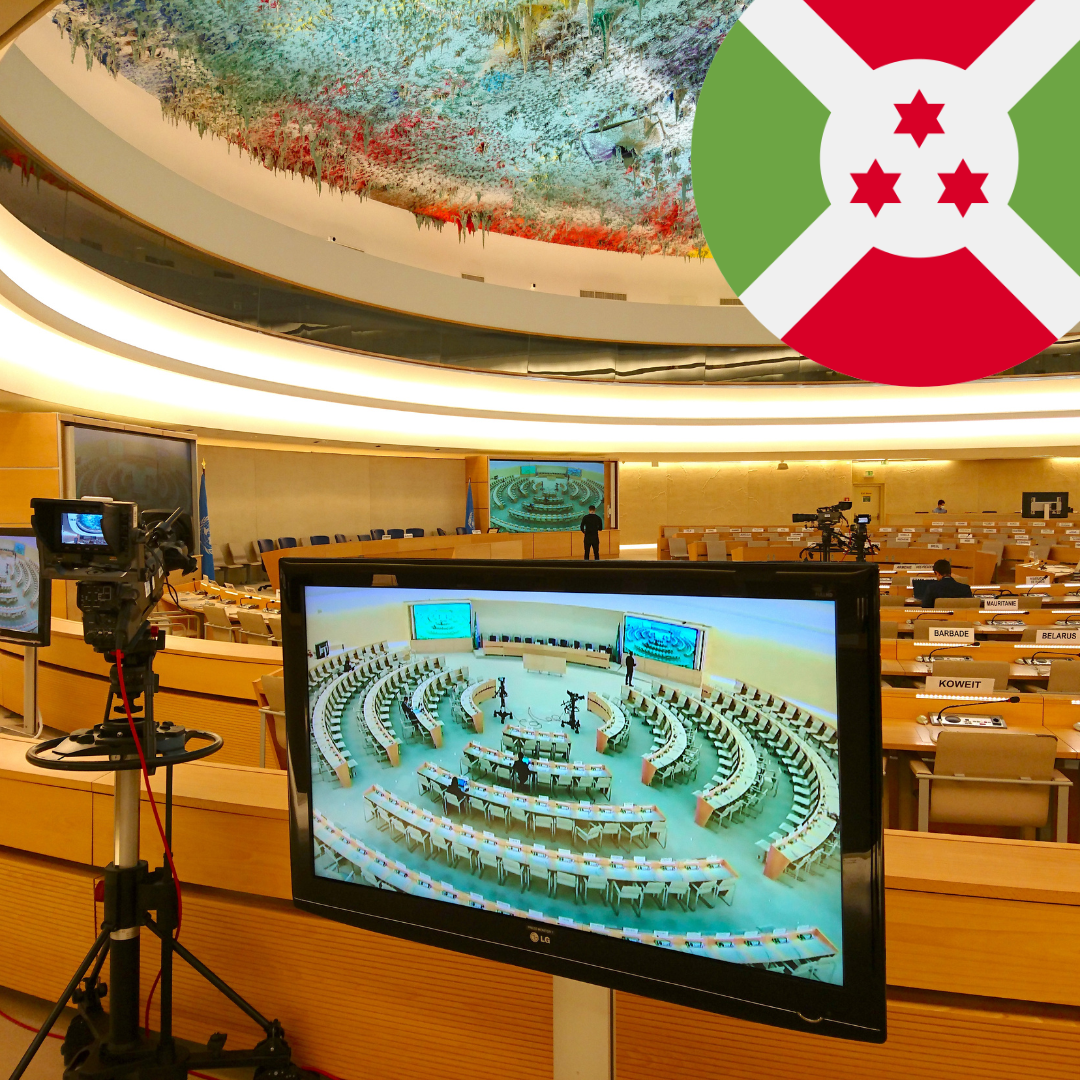As Burundi enters two successive election periods (2025 and 2027), the UN Human Rights Council has extended scrutiny of the country by adopting a resolution titled “Situation of human rights in Burundi” today. DefendDefenders welcomes the resolution, which extends the mandate of the Special Rapporteur on Burundi and condemns a wide range of human rights violations and abuses.
“The international community did the right thing by keeping a spotlight on the human rights situation in Burundi,” said Hassan Shire, Executive Director, DefendDefenders. “Burundi’s 2015 crisis is unresolved and deeper grievances over bad governance, inequality, and attacks on the rule of law and human rights remain unaddressed, with potentially grave implications for the country and for peace and security in the Great Lakes region.”
The resolution adopted today (A/HRC/57/L.12) condemns and details a litany of human rights violations committed in Burundi, including extrajudicial killings, enforced disappearances, arbitrary arrests and detentions, acts of torture, and sexual and gender-based violence. It condemns the widespread impunity for all violations and abuses and deplores the reduced space for free expression, civil society, citizen activism, political participation and a free and fair judiciary.
Resolution 57/L.12 is the first Burundi-focused resolution adopted after the country was elected a member of the Human Rights Council (for the period 2025-2027), in a process deprived of any competition. In this regard, the resolution recalls members’ obligations, including to “uphold the highest standards in the promotion and protection of human rights” and to “fully cooperate with the Council.” Member states of the Council were suspended on two occasions in the past (Libya in 2011 and Russia in 2022) for failure to adhere to membership standards. Civil society has repeatedly emphasised that Burundi is unfit for Council membership.
Today’s resolution is also the result of enhanced advocacy by Burundian civil society and its regional and international partners, including in person engagements during the Council’s 57th session. Ahead of the session, civil society urged the international community to keep a close eye on Burundi. “As serious human rights violations continue to be committed in Burundi in a context of widespread impunity, and as the country prepares for legislative and presidential elections in a tense national and regional environment, the [Council] should maintain its scrutiny,” they wrote in a letter to states.
Burundi will hold legislative and communal elections in May 2025 and a presidential election in May 2027. Previous election cycles have been marred with violence. The Human Rights Council addressed the crisis triggered by former President Nkurunziza’s announcement that he would run for a third term in office, in 2015, by holding a special session, in December 2015, and establishing a Commission of Inquiry (COI), in September 2016. In 2021, the COI was succeeded by a Special Rapporteur, an independent expert tasked with monitoring and reporting on the country’s human rights situation.
The Council is holding its 57th regular session from 9 September to 11 October 2024. It is expected to adopt over 40 resolutions covering both thematic issues (including racism and human rights on the internet) and country situations (including, in addition to Burundi: Afghanistan, Sri Lanka, Sudan, Russia, and Venezuela). The Council will consider the next report of the Special Rapporteur on Burundi at its 60th session (September 2025).
For more information, please contact:
Estella Kabachwezi
Advocacy, Research and Communications Manager, DefendDefenders
[email protected] or +256 782 360 460 (English)
Nicolas Agostini
Representative to the United Nations for DefendDefenders
[email protected] or +41 79 813 49 91 (English and French)
Communiqué en français :
« Burundi : la surveillance de l’ONU prolongée en amont des élections »

